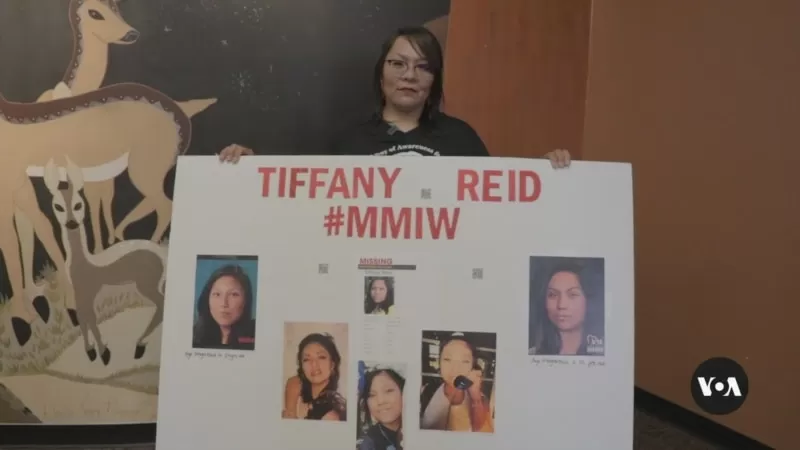The U.S. Department of the Interior has recently brought to light a concerning issue that has been plaguing American Indian and Alaska Native communities for far too long. According to their findings, these communities are at a disproportionate risk of going missing, experiencing violence, or being murdered. This is a heartbreaking reality that has left many families and communities devastated. However, in the Southwest state of New Mexico, some Indigenous families are taking matters into their own hands with the help of a new grant to expand their search for justice. This is a story of resilience, determination, and hope.
The statistics are alarming. American Indian and Alaska Native people are 2.5 times more likely to experience violent crimes compared to any other racial group in the United States. In addition, they are also more likely to go missing and be murdered. These numbers are not just mere statistics, they represent real people, real families, and real communities that are suffering. The impact of these tragedies is immeasurable and has left a deep scar on the Indigenous communities.
But amidst this darkness, there is a glimmer of hope. The U.S. Department of Justice has awarded a grant of $1.5 million to the New Mexico Coalition of Sexual Assault Programs (NMCSAP) to help address the issue of missing and murdered Indigenous people. This grant will be used to fund the Missing and Murdered Indigenous Women and Relatives (MMIWR) project, which aims to provide support and resources to Indigenous families who are searching for their missing loved ones.
One of the families that will benefit from this grant is the family of 26-year-old Ashlynne Mike, a Navajo girl who was tragically abducted and murdered in 2016. Her family has been tirelessly searching for justice and closure ever since. With the help of the MMIWR project, they will now have access to resources such as legal assistance, counseling, and support groups. This will not only help them in their search for justice but also provide them with the much-needed emotional support during this difficult time.
The MMIWR project also aims to raise awareness about the issue of missing and murdered Indigenous people. Many of these cases go unreported or are not taken seriously, which only adds to the pain and suffering of the families. By bringing attention to this issue, the project hopes to create a sense of urgency and demand for action from the authorities.
The grant will also be used to train law enforcement officials on how to handle cases involving missing and murdered Indigenous people. This is a crucial step in ensuring that these cases are taken seriously and properly investigated. It is also a step towards building trust between the Indigenous communities and law enforcement, which is essential in solving these cases.
The MMIWR project is a beacon of hope for the Indigenous communities in New Mexico. It is a reminder that they are not alone in their fight for justice and that their voices are being heard. It is also a testament to the resilience and strength of these communities, who refuse to let their loved ones be forgotten.
The grant has been welcomed by many Indigenous leaders and organizations, who see it as a step towards addressing the systemic issues that have led to the disproportionate risk faced by their communities. They hope that this will be the first of many steps towards creating a safer and more just society for Indigenous people.
The U.S. Department of the Interior’s findings have shed light on a dark reality that has been ignored for far too long. But with the help of the MMIWR project, Indigenous families in New Mexico are taking a stand and demanding justice for their missing and murdered loved ones. This is a story of hope, resilience, and determination. And it is a reminder that when communities come together, they can create real change and make a difference. Let us all stand in solidarity with the Indigenous communities and support them in their search for justice.

